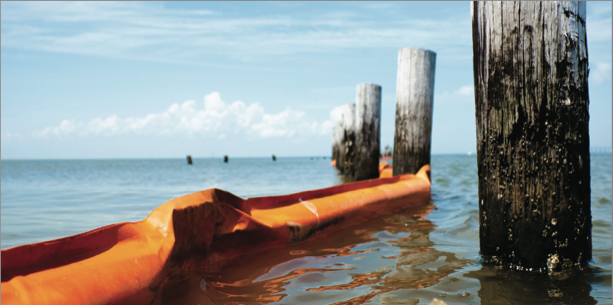(Continued)
The impact of the accident upon the broader oil industry which is so vital to the nation and the world is also significant. From investors to inventors, from engineers to technicians, the Gulf oil leak event will change the way people in the oil industry do things forever. Ingenuity and inventiveness are hallmarks of our economy so we can expect that there will be improvements made relative to both preventative and preparedness measures. This is good, but these improvements will have an impact upon consumers of not just gasoline but any and all products shipped by gasoline-fueled means. New technologies cost money and that cost has to be absorbed somewhere, by someone. New technologies, though helpful, also produce unintended consequences like overconfidence in our abilities to prevent or fix such tragedies. Thinking we can control the earth and all that is in it is hubris and a mistake as old as Babel.
The abilities and inclinations we have as human beings to mold, shape, and form our world originate in being created in the image and likeness of God. Unfortunately those abilities and inclinations are impaired by the failings and vulnerabilities that are also part of humanity stemming from the fall. If we are intent on expanding horizons and industries to improve life and meet our needs and demands, we must do so with an awareness of our human limitations and the potential consequences we may be forced to deal with at our own hands.
 [blockquote]In the midst of devastation, learning occurs that makes us stronger, more responsible, and hopefully more humble.[/blockquote]
[blockquote]In the midst of devastation, learning occurs that makes us stronger, more responsible, and hopefully more humble.[/blockquote]
What do we do now? The answer is not merely political. It might be expected, given the cultural climate of the day, that people will politicize the tragedy and divide into two camps based upon whether they are pro-oil or anti-oil, whether they are for windmills and solar panels or drilling in Alaska. But this is bigger than that, and it requires us to be bigger than that. There are national and global political implications. There will most likely be more policy and regulatory debates over the role of government in relation to private corporations. There should be serious discussion that transcends political rhetoric about how much regulation is necessary and when it becomes onerous and prohibitive to prosperity. Experts and citizens need to speak up from an informed and thoughtful perspective. There are also ethical and philosophical issues being raised as a result of what happened and how it has been handled. The country will benefit from a debate about how to set priorities regarding the funding of recovery initiatives. We need to think about how to balance our responsibilities to people and the environment. The environmental consequences must be understood more fully before they can be addressed effectively. Scientists and ethicists will need to argue about whether nature can take care of such problems over time without human intervention, or if there is a need to engineer natural restoration. And the personal toll for many Americans must be mitigated. Questions will be asked about BP or the government making recompense to business owners and residents of the region. It will get complicated as there are debates (and lawsuits) about that and the logistics of to whom, for how much, and for how long. We need to find ways of helping that go beyond financial retribution. The difficult thing in all of this is that making any one of these factors or implications a priority over any others will have an impact on all of them.
At the very least there ought to be some perspective that results from what happened. Out of crisis sometimes comes opportunity. In the midst of devastation, learning occurs that makes us stronger, more responsible, and hopefully more humble. When we encounter complex problems we should ask ourselves hard questions that are easy to avoid when things are going well. This event is one that should make us realize that life as we have built it is complex. We should not be naïve about our limitations as human beings nor shrink back from the toughest challenges we face. We must look at the complexity of life honestly and bring our best thinking and efforts to bear upon the problems we encounter. We need good judgment and wisdom from people in places of authority and influence. We need leaders who understand the complexities of problems but are not frozen by them, who pool the collective abilities of others to solve problems and marshal efforts to achieve effective and lasting change. We also need to examine our own choices as consumers of both goods and information, and manage our reactions responsibly because they do influence others. And we should expect more from one another and the corporations, agencies, and authorities that make up society. It is important above all else that we remain informed, concerned, and engaged in positive and helpful ways as responsible citizens because we are called to do so.
[framed_box]
Todd J. Williams, Ph.D., has been the President of Philadelphia Biblical University since January 2008. He served as faculty and an administrator from 1996 to 2001, and then returned as Provost in 2005. Interact with Dr. Williams at PBU’s blogsite: blogs.pbu.edu.
[/framed_box]